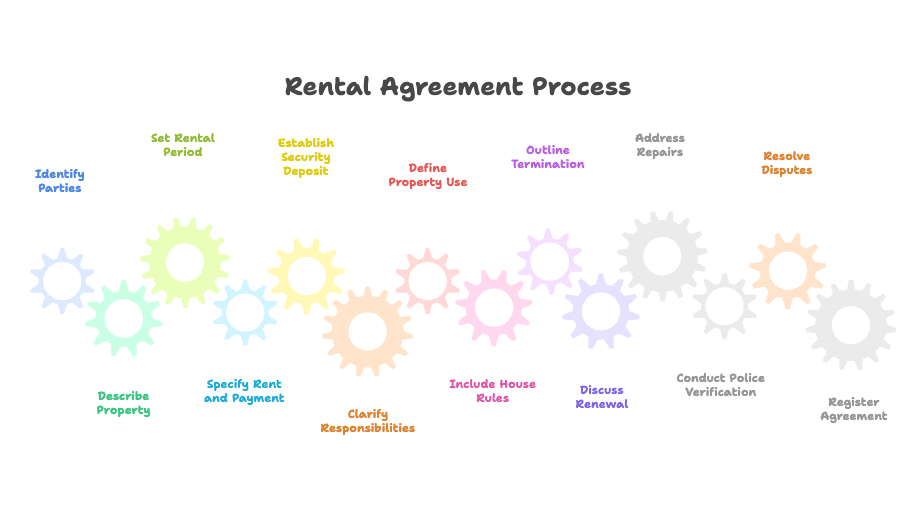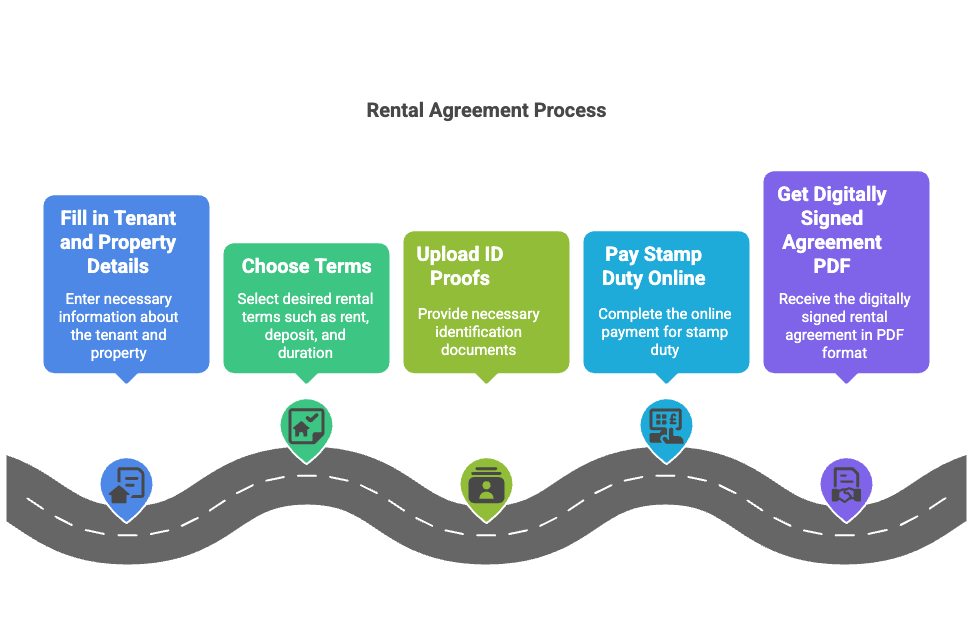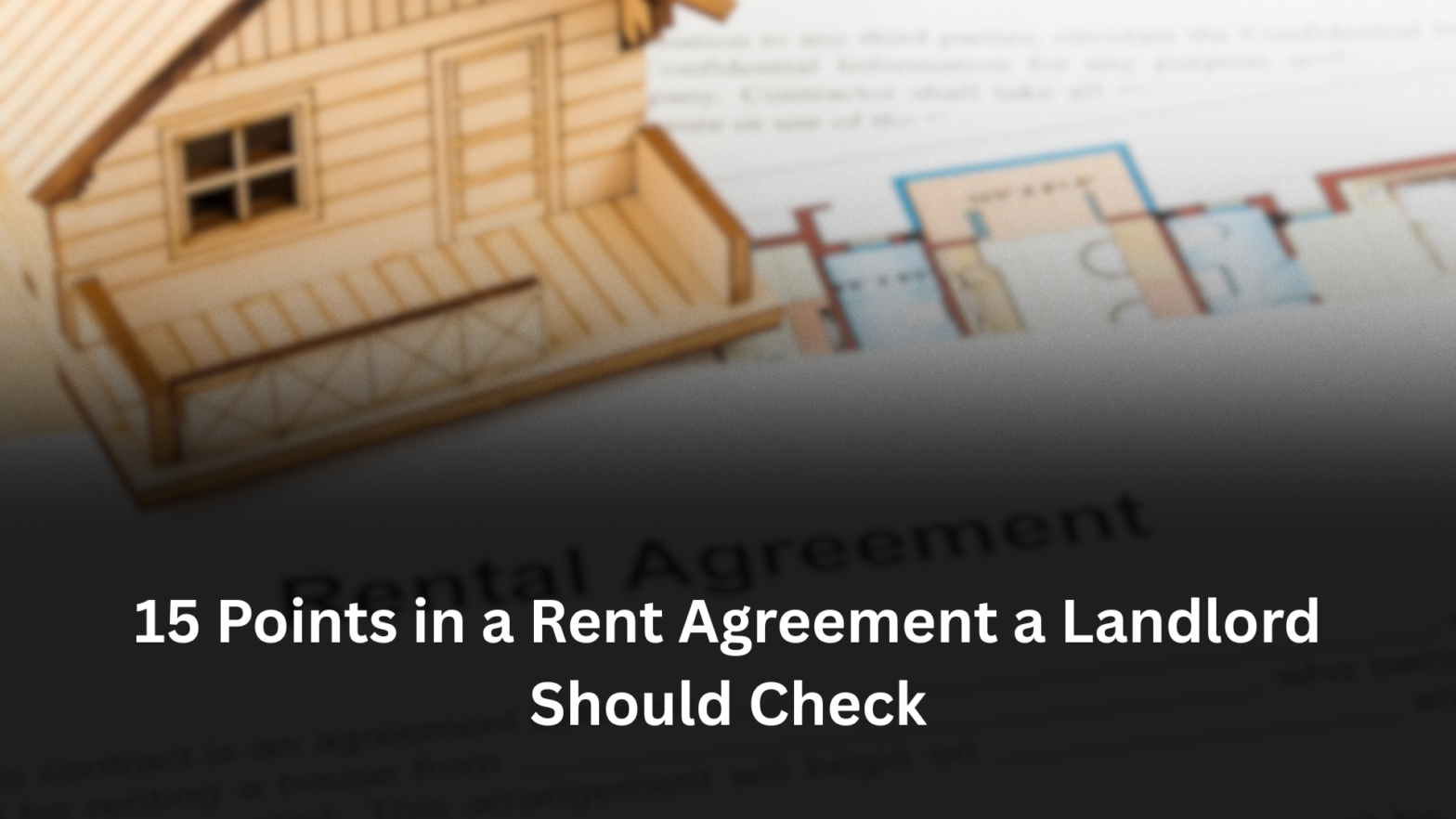Rent Agreement Checklist: 15 Things Every Owner Should Include
In this blog, we’ll walk you through everything you need to know before creating a rent agreement. From understanding why each clause matters to learning how it protects you in case things go wrong, we’ll break it down in simple terms. Whether you’re drafting it for the first time or improving an old one, this will help you create a more secure and effective rental agreement for your PG or hostel.
What is a Rental Agreement?
When you’re running a PG or hostel, creating a solid rent agreement isn’t just paperwork, it’s protection. It keeps things clear, fair, and legal between you and your tenants. Whether you manage one property or multiple, a well-drafted rental agreement ensures peace of mind for everyone involved.
Benefits of a Rent Agreement (For Both Landlords & Tenants)
Whether you’re running a PG, hostel, or rental flat, a proper rental agreement is more than just a legal formality it’s a smart business move. It sets clear expectations, protects your rights, and helps build trust between you and your tenants.
Here’s a breakdown of the key benefits for both the involved parties:
| Benefit | For Landlord (Owner) | For Tenant |
|---|---|---|
| Legal Protection | Protects your property and rental income under the law. | Ensures tenant rights are respected and enforced legally. |
| Clearly Defined Terms | Avoids confusion over rent, duration, rules, and responsibilities. | Offers clarity on what’s expected during the stay (rent due date, rules, etc.). |
| Dispute Resolution | Serves as written proof in case of conflicts. | Provides a fair base to resolve disputes amicably. |
| Privacy & Entry Rules | Allows landlords to enter the property only with notice, as per the agreement terms. | Gives tenants peace of mind and personal space, knowing their rights are documented. |
| Customization & Flexibility | Agreements can include lock-in periods, annual hikes, and maintenance terms. | Tenants can negotiate terms that suit their stay duration or budget. |
| Clarity on Payments & Deposits | Reduces the risk of late payments or disputes on security deposit refunds. | Tenants know how much they’re paying, when, and how the deposit will be handled. |
| Defined Usage & House Rules | Prevents misuse of property (e.g., subletting, running a business without permission). | Tenants are aware of society rules, guest policies, or curfews in PGs/hostels. |
| Police Verification Clause | Adds a layer of safety for co-tenants and the property. | Builds trust in the safety and legitimacy of the accommodation. |
| Exit & Notice Terms | Ensures fair exit strategy with proper notice and minimum losses. | Protects from sudden eviction or unfair financial demands. |
15 Important Points to look for in a Rental Agreement

1. Names and Contact Details–
Start by writing down the full names and current addresses of both you (the owner) and the tenant. This makes it clear who the agreement is between.
2. Describe the Property Clearly–
Mention the full address of the property you’re renting out. If it’s an apartment, include the flat number and building name. Also, list what comes with the property, like furniture, kitchen appliances, or a parking space.
3. Rental Period –
Decide how long the tenant will stay. Most people use an 11-month agreement because it’s easier and doesn’t usually require registration under rent control laws. Clearly mention the start and end date.
4. Rent Amount and Payment Details-
Write how much rent the tenant will pay every month. Include the date it should be paid (like the 5th of each month) and how it should be paid (for example, by bank transfer or UPI).
5. Security Deposit-
This is an amount the tenant gives you at the beginning as a safety measure. Mention how much it is and when and how you’ll return it. Also, explain if you’ll keep any part of it for unpaid rent or damages.
6. Who Pays for What-
Be clear about who will pay the electricity bill, water bill, society maintenance charges, and for repairs. This avoids arguments later.
7. How the Property Can Be Used-
Say if the tenant can only live there (residential use) or also run a business from there (commercial use). Also mention rules like no subletting or using the property for illegal activities.
8. House Rules-
If there are any rules in your building or society like no loud music, no pets, or no smoking include them here so the tenant knows what to expect.
9. Ending the Agreement-
Explain how either you or the tenant can end the agreement. Usually, either side must give one month’s notice in writing.
10. Lock-in Period (Optional)-
If you plan to renew the agreement after 11 months, mention the terms. You can also include a yearly rent increase, for example, 5% more after one year.
11. Renewal and Rent Increase-
Mention the terms of renewal clearly. State that the agreement may be renewed after X months upon mutual consent of both parties. You can also include a clause for rent escalation, for example, a rent increase of Y% at the time of renewal.
12. Repairs and Maintenance-
Write who is responsible for fixing what. For example, you may handle big repairs, and the tenant may take care of small ones.
13. Police Verification-
Many cities require police verification of tenants. Mention that the tenant must provide ID and cooperate with this process.
14. What Happens If There’s a Dispute-
Sometimes problems happen. Mention which city’s court will handle the issue if it goes to court. You can also say that both parties will first try to solve the problem by talking or through mediation.
15. Register the Agreement If Needed-
If your agreement is for more than 11 months, you must register it legally and pay stamp duty (a kind of government fee). This makes the agreement official.
How to do an Online Rent Agreement?
Today, landlords can create a digital rent agreement in minutes using platforms like:
- RentOk
- Government e-disha portals (state-specific)
- Legal platforms from NoBroker, Housing.com, etc.
Steps usually include:

What Are the Online Options for Creating a Rental Agreement?
Gone are the days of running to a notary or typing out agreements from scratch. Today, several online platforms allow you to create, e-sign, and even register rental agreements from the comfort of your home.
These tools are especially helpful for PG and hostel owners who manage multiple tenants and want to streamline the process.
Here are some trusted platforms you can explore:
Platform–
IndiaFilings-Drafting, e-signing, and home delivery of stamped agreements.
Legality-Digital stamp paper, eSign, and secure document storage for bulk agreements.
SignDesk-Smart rental agreement templates with Aadhaar-based eSign and KYC integration.
State Government Portals-Many states like Maharashtra offer official e-portals (e.g., e-StepIn) for digital registration.
💡 Pro Tip: If you’re creating agreements frequently (e.g., for new PG occupants every few weeks), consider using platforms that offer bulk agreement solutions or ready-to-use PG/hostel templates.
Stamp and Registration Charges
Stamp duty and registration charges vary by state. Here’s a rough idea:
- Maharashtra: ₹1000 for registration + 0.25% stamp duty
- Karnataka: ₹500 stamp paper for 11-month agreements
- Delhi NCR: ₹100 stamp paper, registration optional for 11 months
Always check your state-specific rules to avoid legal issues.
Rent Agreement Rules by State
Rental agreement rules can vary slightly from state to state in India, especially when it comes to registration, stamp duty, and police verification. As a landlord—particularly if you run a PG or hostel—it’s important to be aware of your local regulations to avoid legal hassles later.
Here’s a quick reference to help you stay compliant:
| State | Max Agreement Period Without Registration | Police Verification Mandatory? | Avg. Stamp Duty |
| Maharashtra | 11 months | Yes | ₹1000+ |
| Karnataka | 11 months | Optional | ₹500 |
| Delhi | 11 months | Yes | ₹100 |
| Haryana | 11 months | Recommended | ₹100 |
| Punjab | 11 months | Optional | ₹100 |
Why this matters: If you’re renting for more than 11 months, your agreement must be registered and will likely incur stamp duty and registration charges. Also, many cities now require tenant police verification, especially in shared living spaces like PGs and hostels.
Stay protected, stay compliant: Always double-check the specific rules in your state before signing an agreement.
Conclusion
If you own a PG or hostel, don’t treat rent agreements as a formality. It’s your legal armor, your dispute resolution tool, and your tenant onboarding kit all in one.
Need help managing documentation and tenant onboarding?
👉 RentOk is building digital tools to help you manage everything from agreements to rent tracking all in one place.

